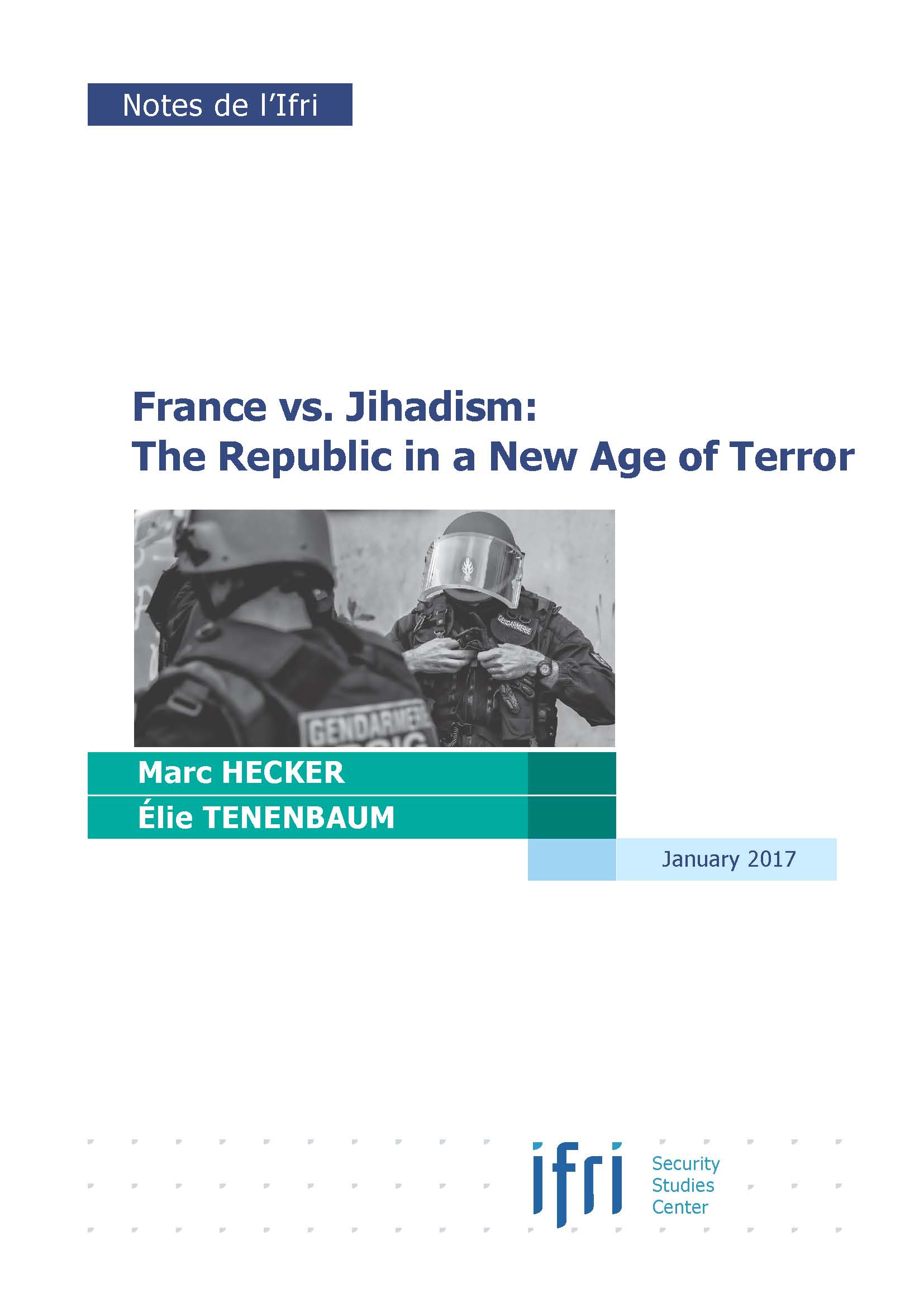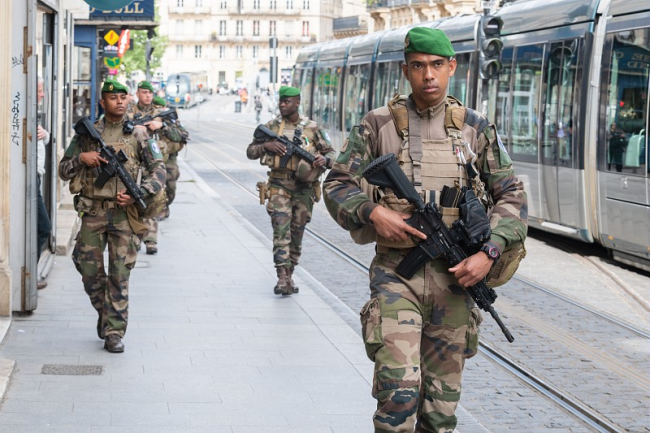France vs. Jihadism: The Republic in a New Age of Terror

This paper assesses the current state of the jihadist threat to France, as well as the French authorities’ security response. With the upcoming presidential election, 2017 will be a decisive year for the country. Terrorism will be at the heart of the campaign and ISIS will most likely try to strike again.

The current French Administration has certainly been very active in fighting terrorism. However, the threats originating from both outside and within the country remain extremely high. As ISIS is slowly dwindling in Iraq and Syria, the flow of returning jihadists will increase. This terrorist organization may be tempted to make up for its territorial loss by committing spectacular attacks in the West. France is also challenged internally. It must deal with unrelenting social and religious tensions, but also, more pragmatically, the fact that 80% of convicts of terrorism will be released over the next five years. This undoubtedly casts an ominous shadow over the future.
This paper was originally published in the following book: Abu Rumman, Mohammad Suliman et. al., Methods of Preventing and Combatting Terrorism in the MENA Region and in the West, Amman (Jordan), Friedrich Ebert Stiftung, 2016. It can be accessed at www.fes-jordan.org. An Arabic translation is also available: http://library.fes.de/pdf-files/bueros/amman/13088.pdf

Available in:
Regions and themes
Share
Download the full analysis
This page contains only a summary of our work. If you would like to have access to all the information from our research on the subject, you can download the full version in PDF format.
France vs. Jihadism: The Republic in a New Age of Terror
Related centers and programs
Discover our other research centers and programsFind out more
Discover all our analysesThe Franco-German Brigade and the Revival of European Defense
One thing has been clear since Donald Trump's return to the White House: the very existence of the European unification project is threatened. Unless it develops a sovereign defense policy to counter the war in Ukraine and the weakening of American security guarantees, the European Union will continue to see its internal cohesion and external attractiveness wane.
Taking the Pulse: Can Europeans Build Their Independent Extended Nuclear Deterrent?
Confronted with a U.S. disengagement and the Russian threat, Europeans are reconsidering their stance on nuclear deterrence. Given the capabilities of the French and British arsenals, can Europe develop an independent nuclear deterrent?

RAMSES 2024. A World to Be Remade
For its 42nd edition, RAMSES 2024 identifies three major challenges for 2024.
A Transatlantic Defense Industrial Base? Two Contrasting Views
The evolving landscape of global defense cooperation has brought the transatlantic relationship between the United States (US) and Europe into sharp focus. As geopolitical tensions rise and the threat environment becomes more complex, the question of how Europe can best ensure its security while navigating its relationship with the United States has become paramount. This double feature report offers two contrasting views on the dynamics of US-Europe defense industrial relations, highlighting the challenges and opportunities that lie ahead for both parties.












